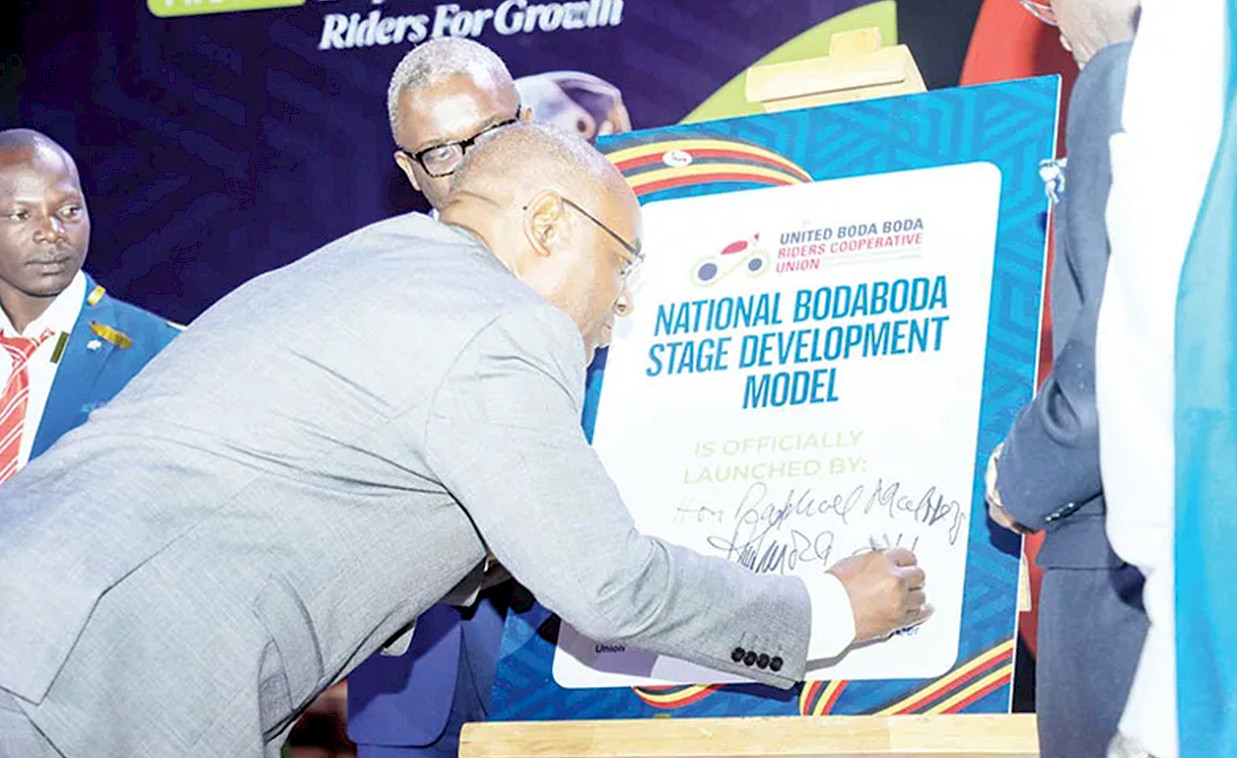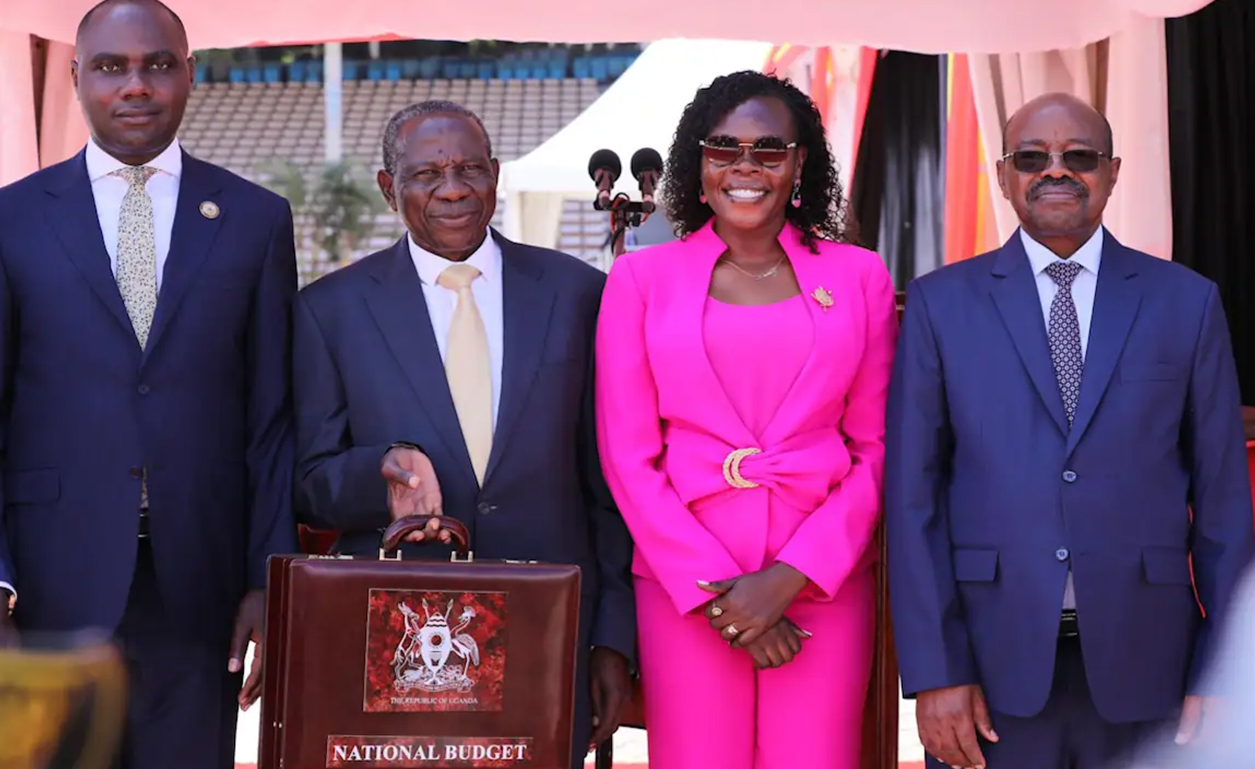Transforming Uganda’s Boda-Boda Sector: A Digital Leap Towards Inclusive Social Security
Monday, July 28 2025 5:03 pm
By William Lutaaya Follow on LinkedIn
In Uganda’s cities and rural areas alike, the boda-boda—local motorcycle taxis—are far more than a means of transport. They are the economic lifeblood of the country. With over 1 million riders on the road and an estimated 7 million Ugandans depending on their services daily, the sector plays a critical role in transporting people, delivering goods, and enabling small-scale commerce. It is Uganda’s second-largest employer after agriculture.
Yet for all its size and significance, the boda-boda sector remains deeply informal. Most riders operate as freelancers—unregistered, uninsured, and without access to basic social protections. This leaves them exposed to daily hazards, income instability, and the looming insecurity of retirement without savings.
For the National Social Security Fund (NSSF), which is mandated to manage retirement and social benefits for all working Ugandans, this presents a fundamental challenge: how do you bring social security to a mobile, cash-based, and informal workforce?
The Social Security Gap
Uganda’s broader social security landscape reflects similar challenges. Out of a labour force of over 20 million people, just 2.4 million are members of the Fund—an overall coverage of less than 12%. Of these, approximately 45,000 are voluntarily contributing outside formal employment structures. This limited uptake underscores the difficulty of reaching informal workers, including those in the boda-boda sector, which—despite being hard to regulate—presents a unique opportunity due to its high visibility, deep community integration, and growing digital engagement.
From Informality to Inclusion: A Digital Turning Point
A breakthrough however has come from within the sector itself. The United Boda Boda Riders Cooperative Union (UBBRCU or “the Union”) is a nationwide organization formed to professionalise and streamline boda-boda operations. With a growing base of over 100,000 registered riders across 30+ districts, the Union provides both organisational reach and operational structure.
Central to its efforts is the Union App—a ride-hailing and rider management platform that digitises operations. It logs rides, tracks financial behaviour, and collects valuable real-time data about rider activity and earnings. For NSSF, this technology offers a ready-made channel to reach riders where they already are—online and connected.
A New Model for Social Security Delivery
Seeing the potential, NSSF has partnered with the Union to pilot a bold integration of services including the Union App, which serves as the front-end platform for user registration, verification and engagement, and NSSF Go (SmartLife), which is the Fund’s digital savings product designed for informal workers.
Through an Application Programming Interface (API) integration, boda-boda riders can now register for retirement savings, make contributions, and track their funds, all within the Union App. This eliminates major barriers like paperwork, travel to physical offices, and limited financial literacy. It brings social protection to riders in real time on the devices and platforms they already use. This is not just digitisation. It is a reimagining of social security for the gig economy.
Scaling Toward 2035: The 50% Coverage Goal
NSSF aims to increase national social security coverage to 50% of the workforce by 2035. This means 15 million members actively saving with the Fund in the next 10 years. The boda-boda sector alone services 70% of urban transport demand, making it a high-impact entry point.
As the sector continues to digitise, new service bundles are becoming feasible. Riders could soon access health insurance, accident coverage, microloans, and pension plans, all from a single platform and at the click of a button. A partnership with boda-boda associations could be the launchpad for a full ecosystem of inclusive digital finance and social security services.

Learning from across Africa
Uganda’s initiative joins a growing continental movement. In Kenya, platforms like M-TIBA and M-KOPA integrate mobile savings and insurance into everyday transactions for informal workers. M-TIBA, a mobile health wallet, has reached over 5 million users and enabled over KSH 2.6 billion (USD 24 million) in healthcare payments annually. M-KOPA, a pay-as-you-go platform for solar, smartphones, and e-mobility, has served over 3 million Kenyans, providing USD 1.5 billion in credit and enabling 62% of its users to generate income from their financed products. In Rwanda, the EjoHeza digital pension scheme under Rwanda Social Security Board (RSSB) has enrolled 3.2 million informal sector workers, including thousands of taxis and boda-boda riders. In 2023, it had mobilised over RWF 45 billion (USD 40 million) in voluntary savings.
The common thread? Where digital engagement exists, social protection can follow. Uganda’s boda-boda initiative builds on these lessons, adapting them to its unique labour landscape to extend coverage and improve financial resilience among informal workers.
What will it take to succeed?
To scale and sustain this transformation, 3 general pillars must align:
People:
We must address mindset and behaviour innovatively. Boda-boda riders need to be given a reason to save for their future and encouraged to maintain a consistent behaviour towards this goal. Behavioural nudges and gamification that promotes a culture of long-term saving among riders should be encouraged.
Processes and technology:
The process should be made easy and fun. Boda-boda riders need to be given a seamless digital experience that reduces friction to adoption of this change. Data interoperability across platforms can lead the way to creating new digital experiences that ensure smooth information flow between NSSF, SACCOs, Fintechs, telcos, and ecosystem partners, and fit within the lifestyle of these riders.
Governance:
We must safeguard the interests of the beneficiaries. A robust governance framework is essential to safeguard riders’ interests while enabling innovation. Regulators and policymakers must be actively engaged, not only to create an enabling environment for digital financial inclusion but also to enforce safeguards that protect boda-boda riders from exploitation, data misuse, and financial risk. Collaborative regulation that balances flexibility with accountability will ensure trust in the system, accelerate adoption, and reinforce the long-term credibility of social protection for informal workers.

Informality is not a barrier—it’s a beginning
The boda-boda sector is not a problem to be solved; it is an opportunity to be seized. By embedding social protection within existing digital ecosystems, NSSF is doing more than collecting contributions. It is redefining what social security looks like in a fast-changing, informal economy.
So why does this matter? Because the stakes are enormous.
Today, 85% of Uganda’s gig workers have no retirement savings, leaving millions vulnerable to poverty in old age. Yet, this is not just a social issue—it’s an economic one. Every boda ride generates value, and every rider represents untapped financial potential. If even half of Uganda’s 1.2 million boda-boda riders join Smart Life and contribute just UGX 1,000 weekly, NSSF could mobilise over UGX 550 billion in new savings from a section of the population previously untapped. In addition, this would also help close 8.3% of the national coverage gap that currently exists.
Beyond the numbers, this initiative proves a bigger point: informality is not a barrier, it’s the beginning of Uganda’s next financial revolution. Riders are digitally connected, community-driven, and increasingly open to innovative financial services. What was once invisible and unreachable is now a visible, organised network, ready to be part of the nation’s growth story.
By acting now, NSSF is not only protecting the financial futures of boda-boda riders but also laying the groundwork for scalable, digital-first social protection across all informal sectors—from market vendors to artisans and gig workers. This is the blueprint for how Uganda, and Africa, can transform informal economies into engines of inclusive growth.
The message is clear; for riders, this is a path to dignity and security in retirement; for NSSF, it’s a game-changing strategy to achieve its coverage growth goals; for Uganda, it’s proof that innovation can turn informality from a challenge into a national advantage.
Every boda ride can now be a step toward financial dignity. And every rider becomes not just a transporter of passengers, but a stakeholder in Uganda’s prosperity. Informality isn’t the end of the story. It’s where Uganda’s story of inclusive social security truly begins







